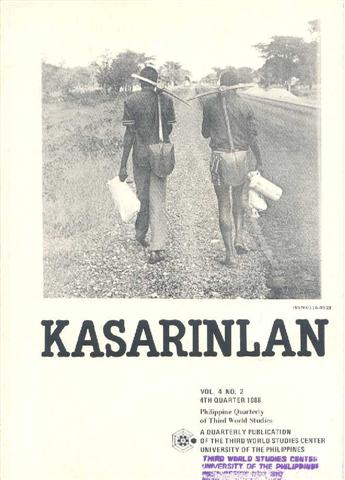Nicaragua's Mixed Economy Project: Lessons for the Philippines
Abstract
It is not clear what the future course of the Sandinista Popular Revolution will be. What is evident is the openness and the ability of the Sandinista leadership to admit mistakes and pragmatically redirect their economic policies based on their commitment in general terms to the principles of national unity and a mixed economy within the framework of a democratic, popular and anti-imperialist system. Imperialist aggresion, backwardness, and dependency, characteristics faced by all national liberation movements, dictate that for a periodm, which may be quite long, these economies in the process of restructuring and transition may not be viable on their own. International solidarity from friendly nations has been vital for the defense of the revolution. A hegemonic position of the popular classes within the framework of a mixed economy based on national unity, may not, in the short-run, be a viable project, but it preserves the revolutionary agenda for the posible transition.
Published
2009-07-21
How to Cite
FAUSTINO-AGUADO, Jaime.
Nicaragua's Mixed Economy Project: Lessons for the Philippines.
Kasarinlan: Philippine Journal of Third World Studies, [S.l.], v. 4, n. 2, july 2009.
ISSN 2012-080X.
Available at: <https://journals.upd.edu.ph/index.php/kasarinlan/article/view/1359>. Date accessed: 02 sep. 2025.
Issue
Section
Features
By submitting a manuscript, the authors agree that the exclusive rights to reproduce and distribute the article have been given to the Third World Studies Center.



